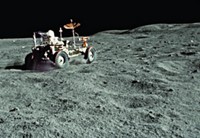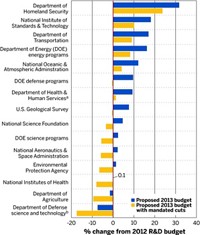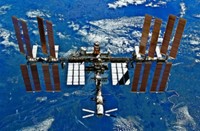Advertisement
Grab your lab coat. Let's get started
Welcome!
Welcome!
Create an account below to get 6 C&EN articles per month, receive newsletters and more - all free.
It seems this is your first time logging in online. Please enter the following information to continue.
As an ACS member you automatically get access to this site. All we need is few more details to create your reading experience.
Not you? Sign in with a different account.
Not you? Sign in with a different account.
ERROR 1
ERROR 1
ERROR 2
ERROR 2
ERROR 2
ERROR 2
ERROR 2
Password and Confirm password must match.
If you have an ACS member number, please enter it here so we can link this account to your membership. (optional)
ERROR 2
ACS values your privacy. By submitting your information, you are gaining access to C&EN and subscribing to our weekly newsletter. We use the information you provide to make your reading experience better, and we will never sell your data to third party members.
Environment
Extending Hubble's Scientific Life
Congress looks at options for NASA's premier space telescope
by Susan R. Morrissey
February 7, 2005
| A version of this story appeared in
Volume 83, Issue 6
SPACE EXPLORATION
Congress reopened debate over the future of NASA's Hubble Space Telescope with a hearing on Feb. 2 held by the House Science Committee. A panel of experts from industry and academe told the committee that the telescope should be repaired, but they were less sure about how to pay for the work.
"There is disagreement about how and whether to save Hubble," said committee Chairman Sherwood L. Boehlert (R-N.Y.). "That disagreement will come to a head in the coming weeks once the proposed federal budget for fiscal 2006 is released--regardless of whether it actually zeros out [funding for] the Hubble mission, as has been rumored."
To help the committee prepare for that debate, the experts discussed the benefits, risks, and costs of several options for the Hubble, including a mission to safely remove the telescope from orbit, a shuttle mission to service the telescope, a robotic mission to service the telescope, and the launch of a new telescope to replace Hubble.
The panel generally supported a servicing mission, expected to cost in excess of $1 billion. But when faced with the question of whether they would cut funding for other programs to finance it, the panelists' support waned.
Panelist Louis J. Lanzerotti, a physics professor at New Jersey Institute of Technology and chair of the National Academies committee that published a report last year in support of a shuttle mission to save Hubble (C&EN, Dec. 13, 2004, page 22), noted that he would not be in favor of the costs for a servicing mission coming out of other science programs. Panelist Joseph H. Taylor, physics professor at Princeton University, also said he would not support a servicing mission if it meant major delays in other programs.






Join the conversation
Contact the reporter
Submit a Letter to the Editor for publication
Engage with us on Twitter